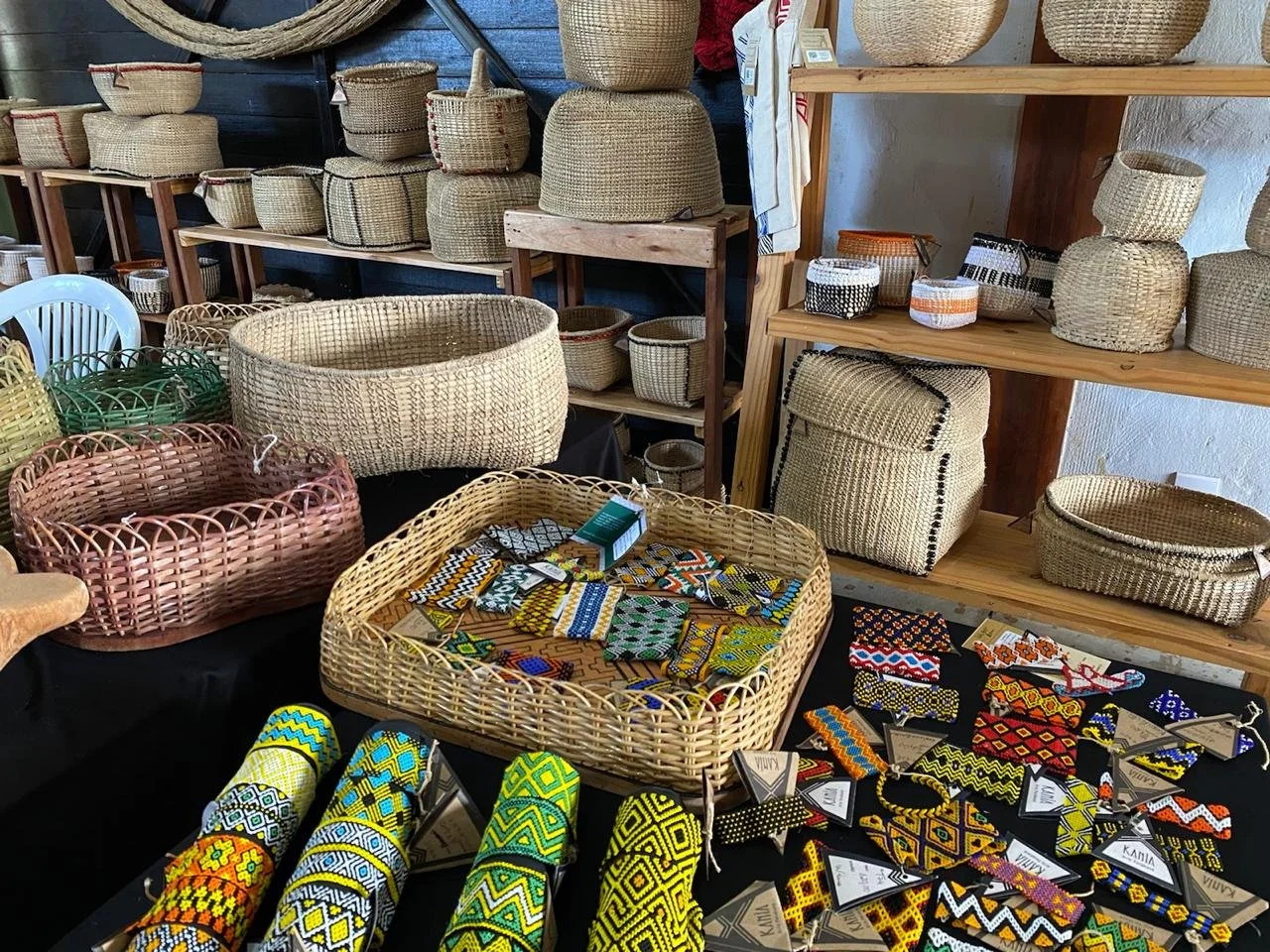Supporting Brazil’s Indigenous artisans
In the Xingu River Basin, in the Brazilian Amazon, SAMA–Health In Harmony is honored to have been collaborating with the Terra do Meio Network since 2020. A key strand of this work, borne out of Radical Listening sessions with Indigenous communities in the region, focuses on livelihoods and forest economies.
Terra do Meio is located within an 8.5-million-hectare tropical forest conservation mosaic in the mid-southern State of Pará, amidst one of the most highly contested and threatened Amazonian frontiers. Beiradeiros, Indigenous peoples, and small farmers within eight protected areas and adjacent territories directly participate by selling their products.
Most recently, SAMA-HIH has been supporting the commercialization of handicrafts from the Xipaya, Assurini, Xikrin, and Parakanã peoples by assisting in the continuous development of a handicraft chain, building infrastructure around everything from local production to sales.
A retail store showcasing handicraft products including andiroba soap, wooden spoons, baskets, Brazil nut oil, babassu flour, bio jewelry, clothing, stools, and other items created locally and sustainably has opened in Altamira, Pará; all those products are nested under Terra do Meio Network's label, "Vem do Xingu"—or "Comes from Xingu."
This way, Indigenous peoples—through their representative organizations—can sell their products at Terra do Meio Network, which is managed by the Indigenous and riverside communities themselves. In doing so, this activity stimulates political strengthening for the region and promotes Indigenous closeness in regional affairs, all with respect for ways of being and knowledge of local specificities.
The overall initiative promotes strengthening cultural practices and transmitting ancestral and traditional knowledge through sustainable artisanal production. Through our joint efforts, the communities now enjoy better access to the wider market and promote the value of their culture, strengthening their feeling of Indigenous belonging on a larger scale, as well as developing economic livelihoods that are climate-friendly and rooted in tradition.

